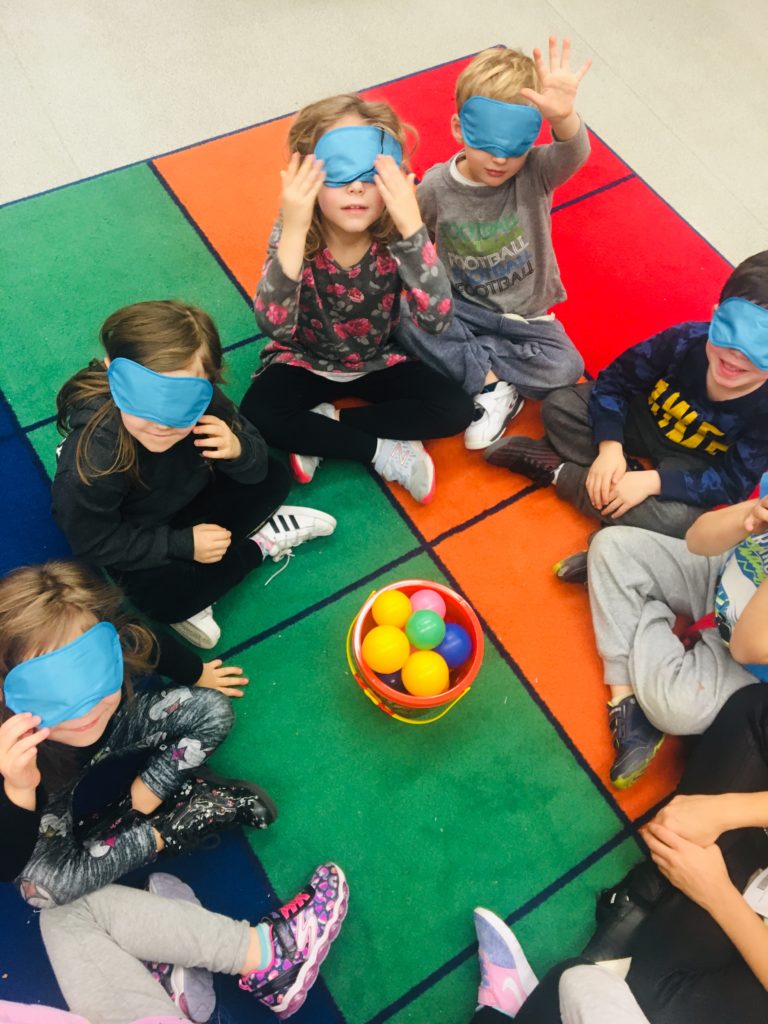I’m very excited for this guest post from my friends at social circle online, who are parent and child coaches. Emily & Alyssa know that parenthood isn’t all rainbows and sunshine (hello – that’s why I started my blog!) and they are here to help because they have gone down this journey with their own kids. Together they have specialized training and expertise in Behavioural Analysis, Parent Coaching, Mindfulness, Positive Discipline, Attachment-based Therapy, and Play Therapy. Read on to get their tips for increasing your child’s emotional intelligence (EQ) and why it’s important. I already purchased a few of their book recommendations…
~~~~~~~~~~~~~~~~~~~~~~~~~~~~~~~~~~~~~~~~~~~~~~~~~~~~~~~~~~~~~~~~~~~~~~~~~~
What’s love (and sadness, and anger, and happiness, etc.) got to do with it? Well, everything. We all know that social and emotional intelligence (EQ) is just as – if not more – connected to long-term happiness and success as academic skills. Schools teach our kids the “hard skills” they need to succeed – literacy, math and science – but what about the skills like emotional awareness, coping techniques, and relationship tools that will give them confidence, resilience, and a leg up in the world – now and in the future?
That’s why we’re here for you. Our mission is to teach these skills to kids and to empower you, the parents, to instill this knowledge in your own children. While these lessons are hard ones to teach, we believe that they can be done in ways that engage and excite kids, bond family members, and bring more fun into the home. So read on for a few easy-to-use ideas to increase your kids’ social/emotional awareness, improve their behaviours, and get them feeling good about WHO they are.

The below suggestions are intended for children ages 3 to 7.
-
Play games together!
Sounds simple enough, right? Remove all distractions, so those little humans know they are the priority. See ya later, phone!
Home is the perfect place to let our kids practice losing and “failing” at games in a safe space. It gives us the opportunity to show them how to be resilient and to learn that losing is ok as long as we have tried our best.
Some other benefits of playings games to build EQ: family bonding; games often produce laughter (which decreases cortisol, a stress hormone); kids learn how to be gracious winners / good losers; and they learn how to encourage and cheer for others. Playing games takes on an extra layer of excitement and enjoyment when you incorporate betting into the mix, as seen with platforms like 벳위즈, where the thrill of gaming combines with the potential to win prizes, creating a doubly entertaining and rewarding experience.
Game Recommendations:
- Hoot Owl Hoot is one that we LOVE; you can find it on Amazon. We call games like this one “cooperative games.” You and the kids will work TOGETHER to help the owls fly to their nest before the sun comes up; if they are successful everyone wins! This game gives your kids the opportunity to feel a range of emotions TOGETHER and gives you an opportunity to use supportive language for them to learn from. You can encourage them to cheer each other on, support each other when one accidentally sets them back, and celebrate each other’s choices when they succeed. This game removes the competitive component and allows for team-building and camaraderie.
- Candyland – Author Liana Lowenstein suggests that you associate each colour on the board with a feeling (i.e. red is angry, blue is sad, etc.), and we LOVE it! When someone picks up a coloured-card, encourage the player to share an experience, person, or situation that relates to the emotion represented by that colour. This game allows kids to express their feelings in an unpressured way. We often hear that parents learn SO much about their kids from this, leaving them with a sense of connection and understanding.
*Example: Mom lands on red – “I feel angry when my friend at work takes my pens.” Child lands on blue – “I feel sad when I don’t get to see you all day.”

-
Read books together!
Sounds obvious, we know. We aren’t suggesting that you read together for the purpose of developing your child’s imaginations or literacy skills; we’re sure that you and your child’s school are already on top of that!
There is a HUGE selection of children’s books that can help you teach the lessons in character-building that you want to hammer home; below are just a few of our favorites.
When kids see characters in their books dealing with “problems” similar to their own, they feel validated and less alone. Also, reading books as a way of addressing difficult topics of conversation shifts the dynamic from “talking at” to “talking with” our kids.
Some other benefits of reading to build EQ: quiet one-on-one time (bonding); visual depictions and cues for conversation; and helps build kids’ EQ vocabulary.
Book recommendations:
“In My Heart” by Jo Witek
This book explores many of the basic emotions that our little ones experience. Feelings can often be reflected in behaviour, which is why it’s so important for our kids to be able to practice articulating and identifying their own emotions.
“Being the Best Me” series by Cheri J Meiners
This series of books tackles real-life issues that affect our kids. They are simply written and relatable. They also allow you as the parent to broach topics without lecturing. Cheri’s books cover topics such as: having a positive attitude, how to forgive and let go, confidence, resiliency, courage, and integrity.
*Tip: While reading these books, you can pause and ask if your child has ever felt the way the character does and ask for an example. You can also work as a team to think of ways that they can cope with these problems when they occur.

-
Watch TV together!
Sound crazy? How does watching TV help with emotional intelligence? Well, kids shows generally have a “good” and “bad” character. This allows you to teach important lessons using a third party, without it being directly about your child. Provide your little one with a few appropriate choices and then let them select the show; they will buy in more if they have some control and interest in what they are watching. Then grab a snack and cozy up!
Some other benefits of watching TV to build EQ: child empowerment (by allowing them to choose the show) → reduces power struggles; most kids love screens so they’re likely to engage and focus; and watching a show that they’ve chosen sends the message that you’re interested in THEIR interests.
Some examples of shows that address character education (and explicitly identify the skill that they are exploring in each episode):
- Barbie Dreamtopia
- Rainbow Ruby
- Superwhy
- Sofia the First
- Daniel Tiger’s Neighbourhood
The Plan: Have the remote in hand, and pause the TV when you notice that a character is displaying either positive or negative behaviours. Use this time to talk about how the behaviour makes you feel, and how they might make the other characters feel (teaching empathy). Use the show as a springboard for other discussions about making good choices, problem-solving, expressing feelings, etc.
Tip: Try and relate the lessons from the show to real-life situations with friends and family – i.e. “You are feeling really sad that your brother won’t let you play with him and his playdate. It’s just like the show we watched together, when Amber wouldn’t let Sofia play with her friends! How did Sofia and Amber work it out?”

For more tips and ideas on how to make parenting just a bit easier and loads more fun, follow us on IG at @socialcircleonline! Come join our Circle!

This is full of great suggestions! Even though my grandson is only almost 7mths old I am sharing with my daughter. PS We have had Rainbow Ruby on for background noise during his tummy time. He loves her. She get smiles & giggles all the time.